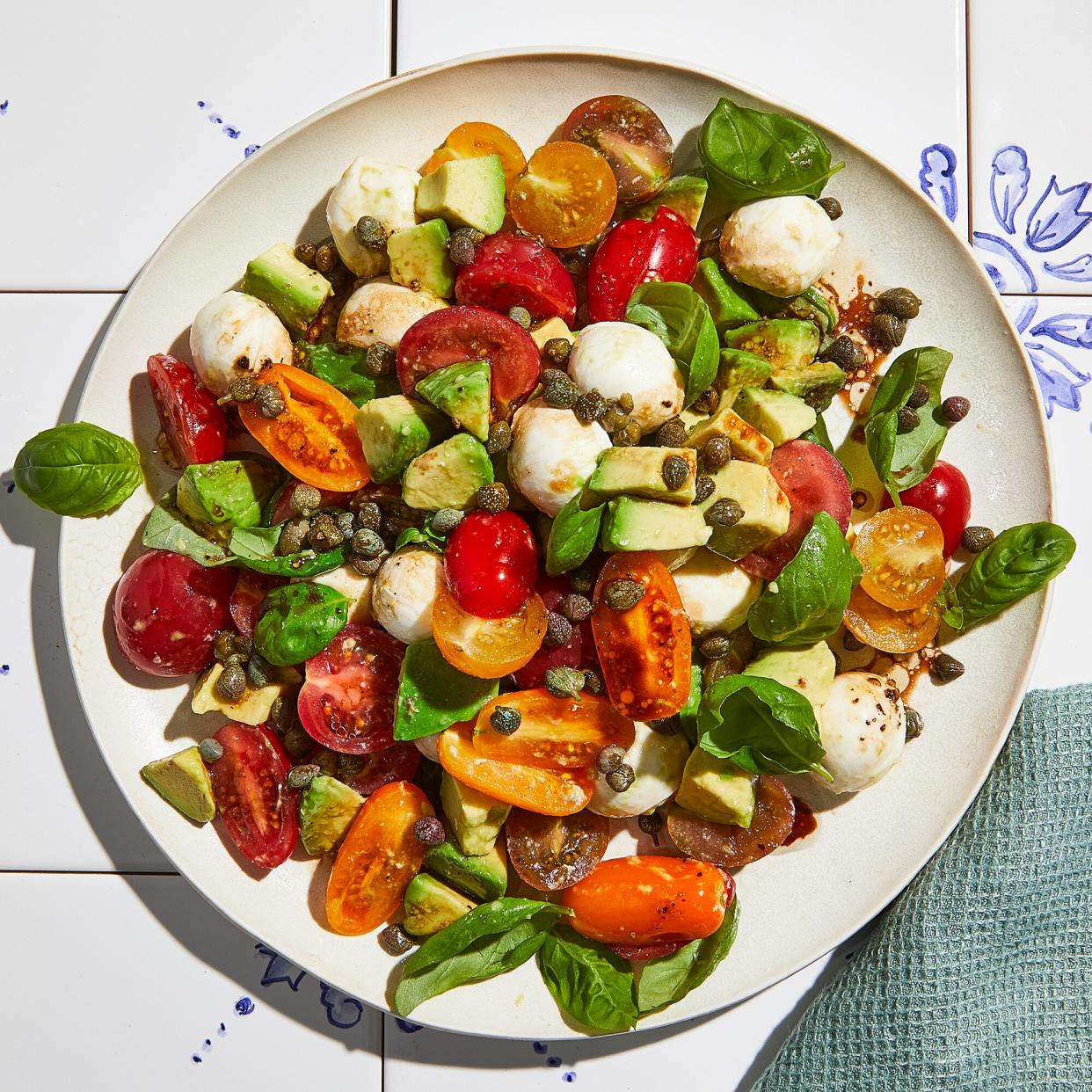Eating Less of This Food Could Lower Your Cancer Risk, According to New Research

Photographer / Jennifer Causey, Food Stylist / Karen Rankin, Prop Stylist / Christine Keely
Pictured recipe: Avocado Caprese Salad
It's no secret that a plant-based diet comes with lots of health benefits—swapping out meat for veggie-based proteins can be good for your heart and gut health, and it can even help you lose weight. And now a new study published in BMC Medicine is adding another item to the pro column: reduced cancer risk.
The study used data from more than 470,000 British adults between the ages of 40 and 70. On average, they spent around 11 years reporting data about their eating habits and overall health to the UK Biobank. After accounting for preexisting conditions, like diabetes, plus socioeconomic and lifestyle factors, researchers from the University of Oxford found that the overall cancer risk was 14% lower among vegetarians and vegans compared to those who ate meat more than five times per week.
Related: Plant-Based Diet for Beginners: Your Guide to Getting Started
But you don't have to quit cold turkey to see some results. Participants who ate meat five times or less per week still had a 2% lower risk for developing cancer, while those who ate fish but not meat had a 10% lower risk. Researchers also looked at some specific types of cancer and found that men following a vegetarian or vegan diet had a 31% lower risk of developing prostate cancer (those who only ate fish still saw a 20% decreased risk). Additionally, eating meat five times or less each week reduced colorectal cancer risk by 9%, which backs up earlier research tying red meat consumption to a higher risk for colorectal cancer.
Researchers also found that post-menopausal women following a vegetarian diet had an 18% lower risk of breast cancer, which researchers think can be tied to the vegetarians typically having a lower body mass index, or BMI. (It's worth noting that BMI isn't actually a very good indicator of health, according to some newer research.)
In a media release, the researchers cautioned that the observational nature of their study does not allow for conclusions about a causal relationship between diet and cancer risk. While no eating pattern can prevent cancer entirely, there is evidence outside of this study that a healthy diet can help limit your risk for cancer. In 2017, the American Institute for Cancer Research issued a statement noting that "there is clear evidence that individuals can take steps to lower [cancer] risk." In January, the institute added that four in every 10 cancer cases could be prevented with changes to diet, weight and physical activity.
Related: 7 Things I Wish I Knew Before Becoming a Vegetarian
Other studies have illustrated that plant-based foods—especially those high in fiber, like legumes, berries and nuts—are also associated with a lower risk of cancer. With less meat on your plate, turning to nutritious plant-based protein sources like quinoa, tofu, lentils and beans will only add to the healthfulness of your eating pattern.
If you want some inspiration for dialing back your meat intake, you could try looping in one of these vegan protein sources for dinner tonight, or you could try a flexitarian eating plan that better meets your lifestyle. You could also check out our plant-based diet grocery list for other ideas—or find all the resources you need in our vegetarian diet center.
The Bottom Line
New research suggests that eating less meat might lower your risk for cancer, even if you still eat meat five times per week. But remember to keep portions in mind—a typical serving of meat is only 3 ounces. Following a vegan or vegetarian diet (even if it's just some of the time) could help reduce your risk even more, so try easy recipes like our Veggie & Hummus Sandwich or Spinach & Artichoke Dip Pasta for simple plant-based swap. If you do go fully plant-based, make sure you stay on top of nutrients like calcium, iron and vitamin B12, which some vegans may struggle to get enough of.

